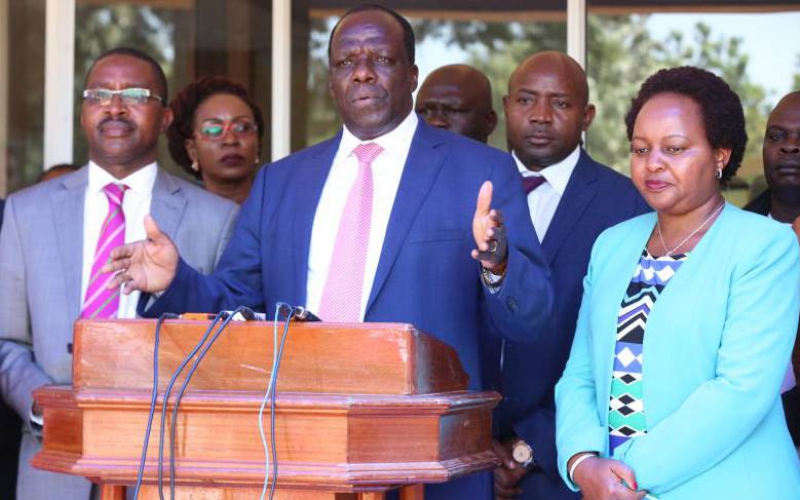Virtually all the 47 counties have broken the law, spending an average of 70 per cent of their revenue on salaries and allowances between July and September last year.
Even more shocking is the revelation that over half of the counties did not put even a single cent into development activities, with the little that was left after expenditure on wages going into maintenance and operations.But Wycliffe Oparanya, the chairman of the Council of Governor, blamed Treasury for making it hard for counties to spend on development.He explained that in the first months of a financial year, the budget line on development spending in the Integrated Financial Management Information System (Ifmis) is normally closed.“At this time, Treasury is only realesing money according to wages. You can’t divert money to anything else because you have to pay salaries,” the Kakamega Governor told The Standard on the phone when contacted for comment. He said this was Treasury’s ways of containing spending.“It’s like we are like being micro-managed from Nairobi,” said Mr Oparanya. He said when development lines are closed, counties can only pay pending bills from previous financial years which is done through “auto-creation.”
Analysts also reckon counties might have been under pressure to pay wages after Treasury failed to release funds in the first months of this financial year. Counties will be hoping to correct this anomaly by June, when the current financial calendar comes to a close, but it has not been lost on observers that since their inception five years ago, counties have struggled to comply with the law. Treasury said in the 2017/18 financial year, only 15 counties complied with the requirement, with some such as Embu, Laikipia, Machakos, Nairobi and Wajir spending more than 50 per cent of their total revenue on wages.Treasury has instructed counties to prepare and submit action plans, including timelines, for achieving sustainable wage bills.Part of the problem could also be explained by the fact that the exchequer has recently admitted that revenue collection has generally been low.“Due to revenue collection shortfalls, we are a bit behind in disbursements to counties. Currently, we are disbursing November/December allocations,” said a source at Treasury who did not want to be named as he is not authorised to speak to the media.The source, however, insisted that most counties had not received their cash due to their poor absorption capacity.
Source: standardmedia.co.ke





